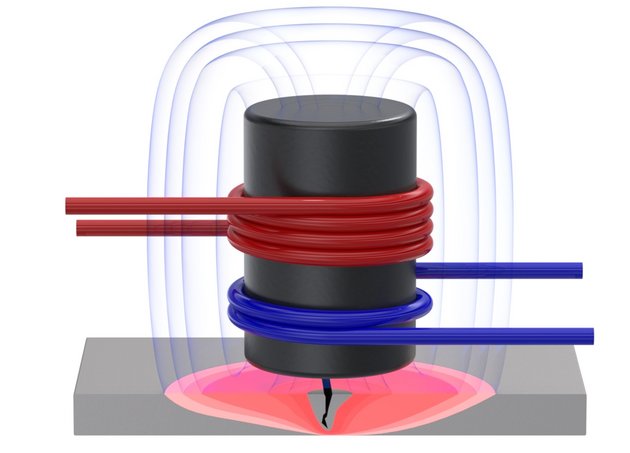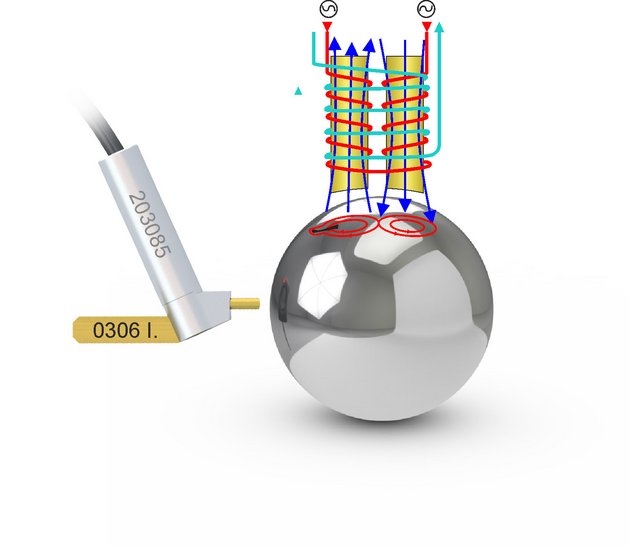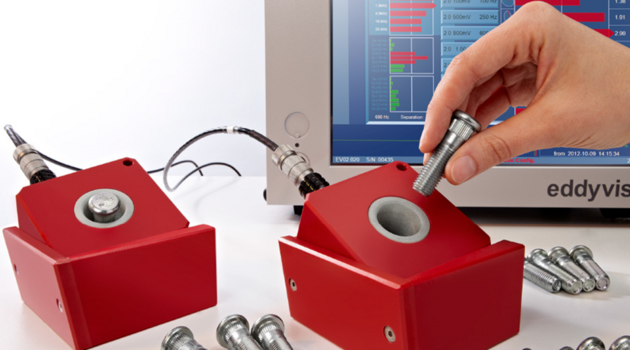Unlocking Precision and Reliability: The Versatility and Advantages of Eddy Current Testing

In the realm of non-destructive testing (NDT), where the paramount objective is to ensure the structural soundness and reliability of metal components, the eddy current principle emerges as an indispensable tool. This sophisticated technique leverages the fundamental tenets of electromagnetism, offering engineers and inspectors the means to scrutinize metal parts meticulously, without compromising their physical integrity. Eddy current testing finds application across diverse sectors, including aerospace, automotive, and manufacturing, where the quality and safety of metal components are of utmost importance.
Unveiling the Fundamentals: Eddy Current Testing and Electromagnetic Induction
At its core, eddy current testing hinges on the profound concept of electromagnetic induction, elucidated by the renowned physicist Michael Faraday in the 19th century. The principle involves the generation of alternating current within a coil or conductor, engendering a dynamic magnetic field in its vicinity. When this energized coil approaches a conductive material, such as a metal component, it imparts within the material circulating electric currents – referred to as "eddy currents."
Exploring Eddy Current Testing: Detecting Material Flaws with Precision
The crux of the matter lies in the subsequent interaction of these eddy currents with the material itself, influenced by its conductivity, permeability, and geometric attributes. Such interactions introduce perturbations to the surrounding magnetic field. These perturbations are meticulously captured and scrutinized by highly sensitive sensors, typically in the form of coils or probes. Subsequent data analysis yields profound insights into the structural integrity of the material, pinpointing the presence of any defects, inconsistencies, or irregularities.
Versatile Applications of Eddy Current Testing in Aerospace and Automotive Industries
Eddy current testing boasts a wide range of applications, demonstrating its efficacy in the detection of surface cracks, subsurface anomalies, corrosion, variations in heat treatment, and even thickness disparities within metal components. In the aerospace industry, for instance, this method assumes critical importance in the examination of aircraft engine components, ensuring their dependability under the most demanding conditions. In automotive manufacturing, it plays an integral role in affirming the safety and reliability of pivotal components like suspension elements and bearing components.
Advantages of Non-Intrusive Eddy Current Testing: Speed, Sensitivity, and Versatility

One of the foremost advantages of eddy current testing is its non-intrusive nature. This stands in stark contrast to destructive testing techniques that often necessitate physical alteration of the material, preserving the structural integrity of the inspected metal component. This not only translates into considerable time and resource savings but also allows for a comprehensive examination of components that would otherwise be challenging to inspect.
Moreover, eddy current testing is characterized by its rapidity and exceptional sensitivity, capable of discerning minute flaws that may elude alternative inspection methodologies. It offers versatility in its implementation, amenable to automation for high-throughput applications, as well as manual deployment for intricate, small-scale inspections.
Revolutionizing Quality Assurance: The Power of Eddy Current Testing in Modern Manufacturing

In summation, the eddy current principle represents a remarkable technological advancement that has redefined the landscape of quality and safety assurance for metal parts across multifarious industries. Through the astute application of electromagnetic induction, eddy current testing empowers engineers and inspectors to make critical determinations regarding the reliability of metal components, thereby contributing to the creation of safer, more efficient, and more dependable products. Its non-destructive character, swiftness, and precision have firmly established it as a cornerstone of contemporary materials testing, with the promise of even greater possibilities on the horizon.
With ibg´s unique family of Eddy Current Test Instruments & Sensors, you can confidently identify and eliminate defects, ensuring your products meet the highest standards of quality. If you have any further questions or would like to learn more about ibg’s Instruments & Sensors, please contact us today.
Contact Us
